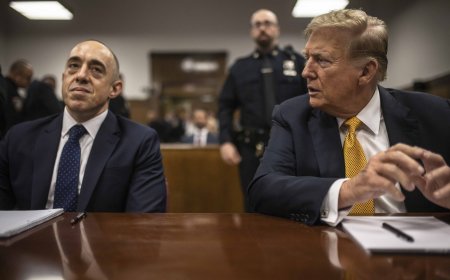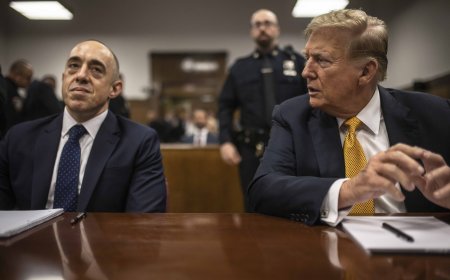Trump Fired the Archivist of the United States


“What’s past is prologue,” from Shakespeare’s The Tempest, is carved in stone in front of the National Archives in Washington, D.C. The contempt shown during Donald Trump’s first term for preserving the nation’s records was prologue to what appears to be even more of the same in his second, as manifested in: the President’s arbitrary firing of the Archivist of the United States, the forced retirement of the Deputy Archivist, and the appointment of Secretary of State Marco Rubio as Acting Archivist—a position for which he has no professional qualifications, let alone hours in the day.
Compounding these moves are reported plans to purge Archives officials who sought the recovery of records the then-former president had failed to return to the federal government despite repeated requests to do so—leading to the FBI search of his Mar-a-Lago compound and subsequent indictment.
Barely three weeks into his second term, Trump fired the Archivist of the United States, Dr. Colleen Shogan, who previously had been the director of the David M. Rubenstein National Center for White House History at the White House Historical Association. Far from being a Democratic activist, among other things she bucked President Joe Biden’s efforts to have the Equal Rights Amendment declared ratified and part of the Constitution.
She is the kind of appointee Congress had in mind back in 1984 when it approved the creation of the National Archives and Records Administration (NARA) as an independent agency, it determined the U.S. Archivist shall be appointed by the president “without regard to political affiliations and solely on the basis of the professional qualifications required to perform the duties and responsibilities of the office of Archivist.” The statute allows the president to remove the Archivist, but the chief executive “shall communicate the reasons for any such removal to each House of the Congress.”
No communication occurred before Shogan’s dismissal, and none seems forthcoming, which violates federal law. If a formal communication is ever transmitted, it’s a safe bet that Trump’s reason for the dismissal will not be impropriety on Shogan’s part but alleged “political affiliations” with the Biden administration. Trump has, on many occasions, expressed contempt for what he calls the “partisan” actions of NARA staff in recovering documents from Mar-a-Lago, in informing the Department of Justice that classified records were found those recovered, and in allowing the DOJ to review those presidential records despite claims of “Executive privilege.”
Shogan had not even been appointed when these events took place, making her dismissal in connection with them absurd. Even worse, Trump’s attribution of partisanship to NARA is false and self-serving. In response to President Richard Nixon’s abuses of power, Congress passed the Presidential Records Act of 1978 to ensure that White House records were owned not by presidents but by the American people. That law has required every president since Ronald Reagan to turn over custody of official White House records to the Archivist on or before the day they leave office. Trump did not fully comply when his first term ended. Consequently, within a few months after President Biden’s inauguration and for the better part of a year thereafter, NARA staff pursued the recovery of presidential records improperly taken from the White House and stored at Mar-a-Lago and other Trump residences.
NARA archivists fulfilled their statutory by not shying away from insisting that a former president’s gov turn over government records still in its custody. They also did their duty by informing law enforcement officials about the national security implications of finding top-secret classified documents in returned boxes.
Trump’s continued refusal to comply with the law after repeated requests led to his indictment for the unauthorized retention and concealment of documents related to national security and for obstruction of justice. Just as it is outrageous that DOJ attorneys and FBI investigators have been threatened with firing or dismissal for having done their job on the Mar-a-Lago matter, so too it is disgraceful to condemn anyone at NARA—least of all Shogan—for simply carrying out their duties under the law.
The president’s vendetta against NARA seems ongoing. On February 6, ABC News, citing an unidentified White House source, reported Secretary of State Marco Rubio had been appointed the Acting Archivist. Curiously, Rubio’s appointment was not officially announced—only his picture showed up on NARA’s website two weeks after the news of his appointment first broke. Whatever Mr. Rubio’s future success will be as Secretary of State and acting administrator for the US Agency for International Development, his third appointment nominally as Acting Archivist shows indifference, if not contempt, for the above-stated statutory requirement that an Archivist be appointed without regard to political affiliations and solely based on professional qualifications.
Moreover, Deputy Archivist William J. Bosanko, an honorable, long-time career civil servant who by law assumed the position of Acting Archivist upon Dr. Shogan’s departure, was reportedly given a choice to resign or be fired by Jim Byron, newly appointed in the job of “Senior Archivist” and effectively running the agency in Rubio’s absence. Byron is on leave as CEO of the Richard Nixon Foundation. With Byron in charge, additional firings at NARA have already occurred. We await who will be next to go for carrying out their archival responsibilities professionally in connection with Mar-a-Lago.
We also await the nomination of the next Archivist of the United States. Whomever is confirmed as Archivist will be responsible for ensuring that, at the end of the President’s time in office, Trump does not again proceed to treat White House records as his personal records to do with what he pleases, in contravention of law.
What happened at Mar-a-Lago was only one of many violations of the Presidential Records Act during Trump’s first term. As widely reported, the 45th president acted in apparent ignorance of his recordkeeping obligations by allegedly ripping up documents and even going so far as to flush records down the toilet. Records about government business, classified or unclassified, are not his “personal records”; instead, under the law that has governed for over 40 years, they are the American records, and Americans have a right to access them five years after a president leaves office. In Trump’s case, that means White House records from his first term will be available, with certain exceptions, under the Freedom of Information Act on January 20, 2026. (We must wait until 2034 for access to records from the current White House.)
President Trump is not the only official who must adhere to the Federal Records Act. Under the statute, Attorney General Pam Bondi must preserve the reports of Special Counsel Jack Smith. Destruction of those records would be a criminal violation. If Bondi fails to heed the law, she needs to be aware that she and her staff may still be held accountable after the Trump administration is gone.
At the very least, the DOJ’s Inspector General and members of Congress can make their views known on preserving Special Counsel reports. While Trump has fired inspectors general at 19 agencies to date, in defiance of the legal requirement that he notify Congress, the inspector general at DOJ, Michael Horowitz, should open an audit to ensure that the records laws are followed.
James Madison is often quoted as saying, “A popular Government, without popular information, or the means of acquiring it, is but a Prologue to a Farce or a Tragedy; or, perhaps both.” Or, as former Archivist David Ferriero has put it, “Records management is the backbone of open government.” We all have a stake in ensuring senior government officials take recordkeeping obligations seriously. Every White House staff member and senior Executive Branch official should receive briefings on their recordkeeping obligations from agency records management officials accompanied by their General Counsels.
Accountability and transparency in government start with preserving records. Let’s hope the president and his appointees will do their duty despite the Shogan dismissal. If disinclined, they ought to be aware of the farce, if not the tragedy, of what will come next if they fail to adhere to their recordkeeping obligations.












































